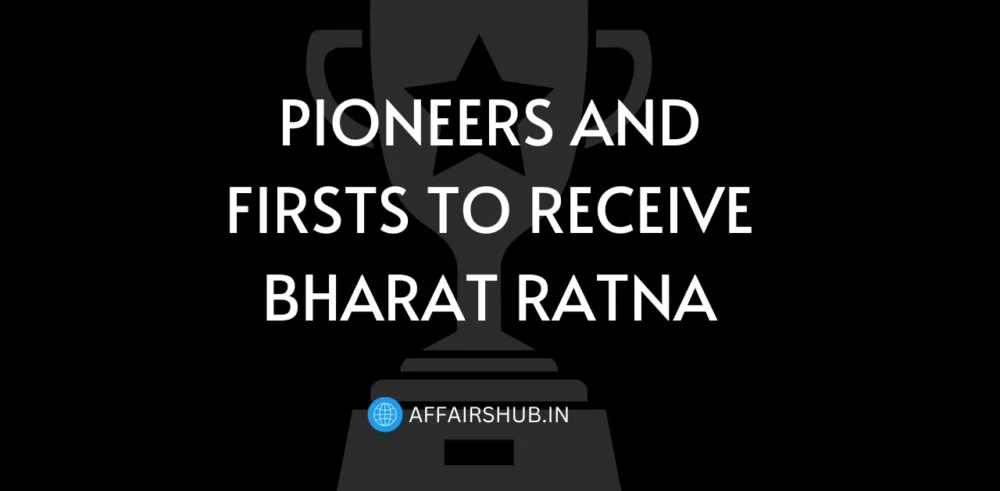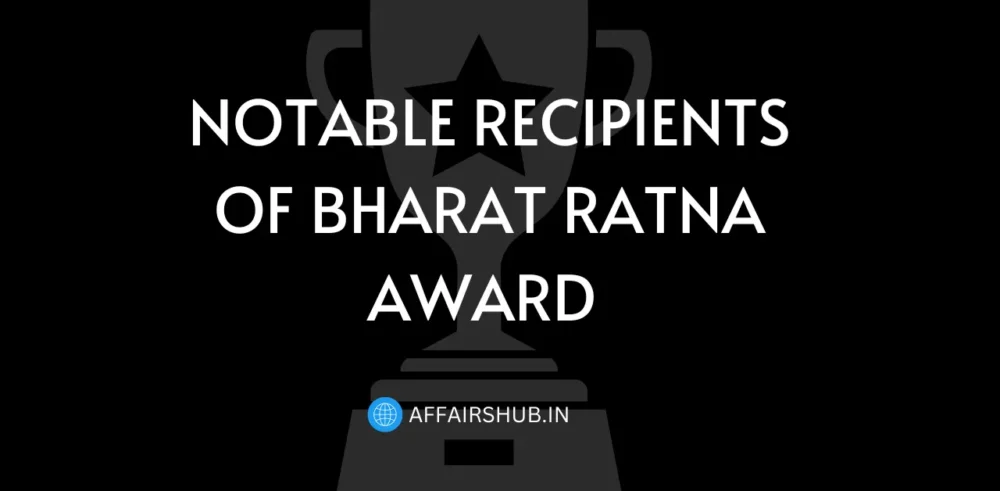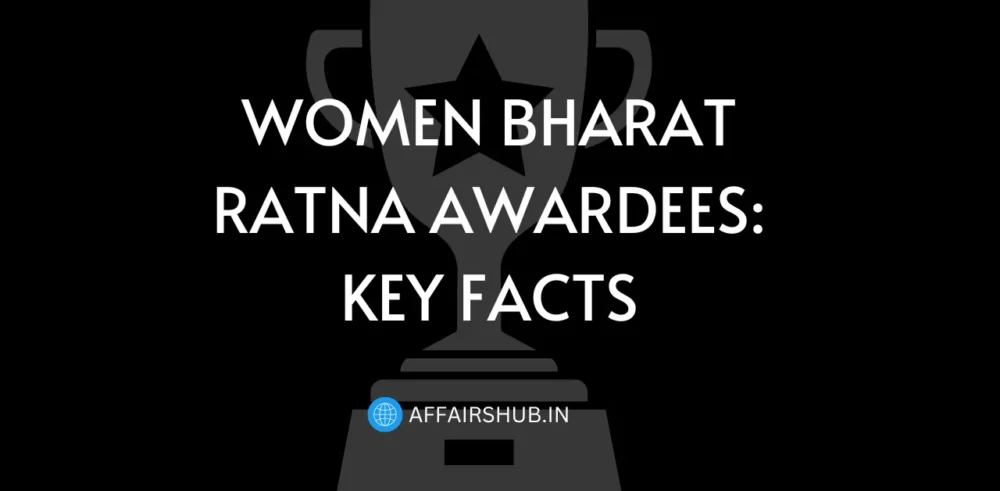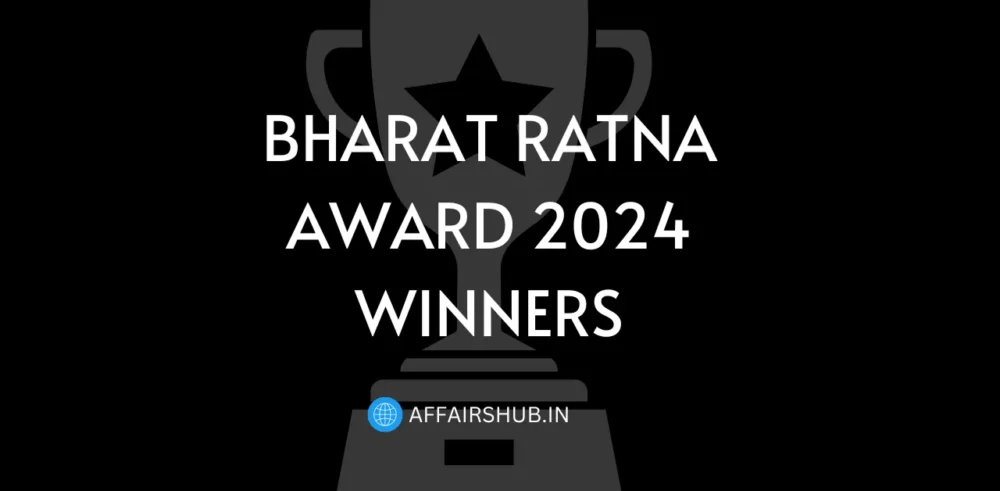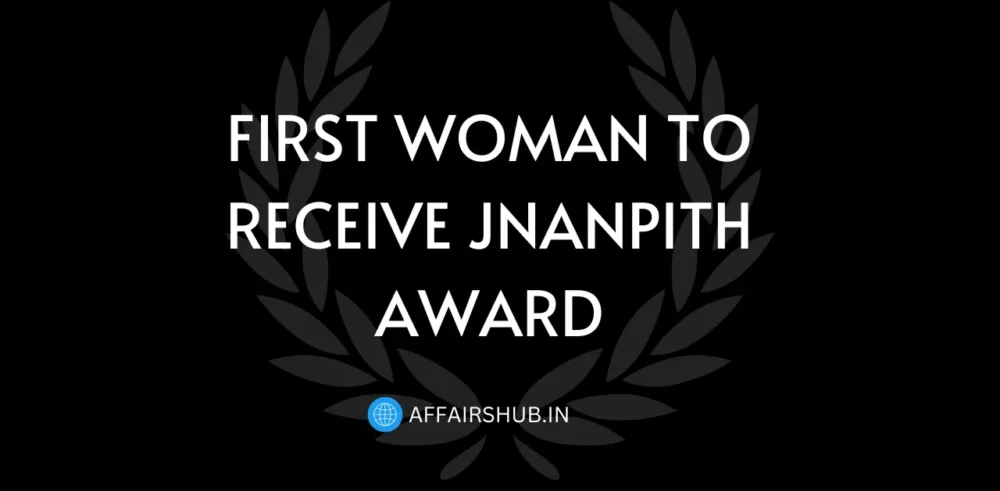Explore all aspects of the Jnanpith Award, including its history, prize money, and a comprehensive overview. This prestigious accolade is the highest literary honour in India, presented by Bharatiya Jnanpith. This topic holds significant importance in the context of awards and honours within the current affairs section.
About the Jnanpith Award
The Jnanpith Award is the oldest and highest Indian literary award, presented annually by Bharatiya Jnanpith to an author for their outstanding contributions to literature.
The Jnanpith Award was established in 1961.
It is annually presented by the Bharatiya Jnanpith to recognize exceptional contributions to literature.
This distinguished award is exclusively conferred upon Indian authors writing in languages listed in the Eighth Schedule of the Constitution of India and English.
Notably, the accolade does not allow posthumous recognition.
Meaning of Jnanpith
The Jnanpith Award is correctly pronounced as the Gyanpeeth Award.
The name, Jnanpith, is derived from the Sanskrit words “Jnana” and “Pitha”, which means “knowledge-seat”.
Literary Field Recognized by Jnanpith Award
The Jnanpith Award is the most prestigious and oldest Indian literary award, which is presented annually by Bharatiya Jnanpith to an author for their “outstanding contribution towards literature”.
The award is given to Indian writers writing in any Indian language and is included in the Eighth Schedule of the Constitution of India and English.
Establishment year
The Jnanpith Award was established in 1961.
The first recipient of the award was the Malayalam writer G. Sankara Kurup.
He received the award in 1965 for his collection of poems, Odakkuzhal (The Bamboo Flute), published in 1950.
Jnanpith Award Presenter
The Jnanpith Award is given by the Bharatiya Jnanpith, a literary and research organization based in India. Founded in 1944.
Industrialist Sahu Shanti Prasad Jain of the Sahu Jain family founded it. The organization promotes literary and cultural activities in India.
Prize money of Jnanpith award
The Jnanpith Award comes with a cash prize of 11 Lakh Indian Rupees (INR), a citation plaque, and a bronze replica of Vagdevi (Saraswati), the goddess of learning. This prestigious award is given to Indian citizens for their outstanding contributions to literature.
Evolution of Criteria (1965-1981)
Initially, from 1965 to 1981, the Jnanpith Award was granted for the “most outstanding work.”
The recipients received a citation plaque, a cash prize, and a bronze replica of Saraswati, the Hindu goddess of knowledge and wisdom.
The inaugural laureate was Malayalam writer G. Sankara Kurup, recognized in 1965 for his poetry collection “Odakkuzhal” (The Bamboo Flute), published in 1950.
Rule Revisions and Cash Prize Increase (1981 Onwards)
In later years, the award rules were revised to focus on works published within the last twenty years, excluding the current award year.
In 1981, the cash prize increased to ₹1.5 lakh.
Further adjustments led to the current cash prize of ₹11 lakh as of 2015.
Language Diversity and Recipients
The Jnanpith Award encompasses works in twenty-three languages, with sixteen languages producing laureates.
Notably, the award has been presented for works in Hindi (eleven times), Kannada (eight times), Bengali, and Malayalam (six times each).
Over the years, the recognition has been extended to diverse literary contributions in various languages, including Urdu, Gujarati, Marathi, Odia, Assamese, Telugu, Punjabi, Tamil, Konkani, and Sanskrit.
Pioneering Women Authors
In 1976, Ashapoorna Devi broke barriers by becoming the first woman to receive the Jnanpith Award.
She was honoured for her 1965 novel Prothom Protishruti (The First Promise), the inaugural installment of a trilogy.
This milestone marked the beginning of recognition for women authors in the literary landscape.
🔶 Discover More about the first woman to receive the Jnanpith Award.
Rules and selection process
Nomination Process
Nominations for the Jnanpith Award are sourced from various literary experts, educators, critics, universities, and literary and language associations.
A triennial advisory committee is formed for each language, consisting of three eminent literary critics and scholars.
Notably, the language of the most recent awardee’s work remains ineligible for consideration for the subsequent two years.
Scrutiny and Recommendations
The language advisory committees meticulously scrutinize all nominations. Their recommendations are then submitted to the Jnanpith Award Selection Board.
The board, comprising seven to eleven members distinguished for their high repute and integrity, plays a pivotal role in the selection process.
Each board member serves a term of three years, extendable for an additional two terms.
Evaluation and Translations
To ensure comprehensive assessment, the board evaluates the recommendations based on complete or partial translations of the selected writings of the proposed authors into Hindi or English. This step ensures a fair and thorough evaluation of literary merit.
Selection Announcement
The Selection Board holds the final authority in the selection process. Once the deliberations are complete, the chosen recipient for a particular year is officially announced by the Selection Board. This meticulous process ensures transparency, fairness, and the recognition of outstanding literary contributions.
History of the Jnanpith Award
Inception and Ideation
The Bharatiya Jnanpith, established in 1944 by industrialist Sahu Shanti Prasad Jain, conceived the notion in May 1961 to initiate a scheme that would command national prestige and international acclaim.
The objective was clear—to select the finest book from publications in Indian languages.
The visionary Rama Jain, Founder and President of Bharatiya Dnyanpith, collaborated with literary luminaries to lay the groundwork for this ambitious project.
Drafting and Presidential Approval
In November of the same year, Rama Jain and influential figures such as Kaka Kalelkar, Harivansh Rai Bachchan, and others presented the initial draft to the then-President of India, Rajendra Prasad.
Prasad, expressing interest in the scheme, lent his support. Discussions on this groundbreaking initiative also took place during the 1962 annual sessions of the All India Gujarati Sahitya Parishad and the Bharatiya Bhasha Parishad.
Formation and Finalization
On April 2, 1962, around 300 writers from diverse Indian languages convened in Delhi for two pivotal sessions led by Dharamvir Bharati.
Here, the draft was meticulously finalized and later presented to President Prasad. Despite Prasad’s unfortunate demise in February 1963, the scheduled meeting proceeded under the leadership of Kalelkar, with Sampurnanand assuming the role of committee president.
Inaugural Selection Board
The inaugural Selection Board, headed by Sampurnanand, comprised distinguished individuals such as Kaka Kalelkar, Niharranjan Ray, Karan Singh, and others.
Their task was to consider works published between 1921 and 1951 for the first Jnanpith Award.
Nine language committees were formed, submitting nominations and translations into Hindi or English.
The final selection included notable authors like Kazi Nazrul Islam, D. V. Gundappa, Viswanatha Satyanarayana, and G. Sankara Kurup.
✅ Explore More: Jnanpith Awards Winners List from 1965 to 2024, with Major Key Facts
First Awardee and Ceremony
On November 19, 1966, G. Sankara Kurup was honoured with the first Jnanpith Award at a Vigyan Bhavan, Delhi ceremony.
The accolade included a citation, a statue of Saraswati, and a monetary prize of ₹1 lakh.
In his acceptance speech, Kurup acknowledged the award’s visionary concept, praising it for fostering the “integration of the diverse people of this land on a spiritual plane.”
Recent Honorees (2023)
The latest recipients of the Jnanpith Award are Sanskrit scholar Rambhadracharya, Urdu writer, and Bollywood lyricist Gulzar.
Their joint recognition in 2023 underscores the continued celebration of diverse literary contributions across languages and genres.
✅ Know Complete Details: Winners of 58th Jnanpith Award 2023: Key Details
Jnanpith Award in a Nutshell
| All major facts about Jnanpith Award | |
|---|---|
| Category of award | Literature |
| Description | Oldest and highest Indian literary award |
| Given for | Outstanding contributions to literature |
| Establishment year | 1961 |
| First Awarded in | 1965 |
| First winner | G Shankar Kurup (Malayalam) |
| Latest winner (2023) | Rambhadracharya (Sanskrit) Bollywood lyricist Gulzar (Urdu) |
| Prize money | 11 lakh INR |
| First woman winner | Ashapurna Devi (Bengali) |
| The Award Given by | Bharatiya Jnanpith, a literary and research organization |
| Bharatiya Jnanpith established in | 1944 |
| State with the Most Jnanpith Awards | Karnataka |
| Language with the Most Jnanpith Awards | Hindi (11) |
| Youngest Awardee | Amitav Ghosh (English) |
Source:
Explore More Awards and Honours Current Affairs:




